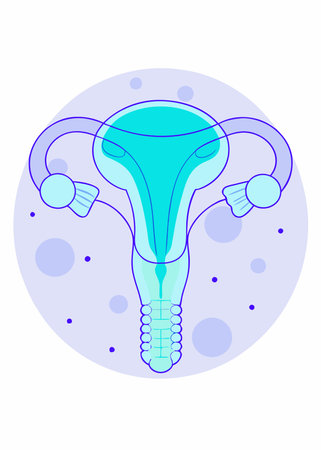The Influence of British Icons
When it comes to shaping beauty standards in the UK, few forces are as powerful as British icons themselves. From the poised elegance of the Royal Family to the bold glamour of Love Island alumni, these public figures have a unique ability to influence both trends and public attitudes towards cosmetic procedures. Their choices—whether subtle tweaks or dramatic transformations—spark conversations across the country, setting new benchmarks for what is considered attractive or aspirational. In a culture where tradition intertwines with modernity, the impact of these celebrities goes far beyond tabloid headlines; they play a pivotal role in normalising treatments that might once have been viewed with scepticism. As British society observes how its most watched personalities navigate the world of aesthetics, it becomes clear that their influence extends into clinics, salons, and everyday conversations, subtly encouraging confidence and self-expression through cosmetic enhancements.
2. Media, Social Platforms, and the Cosmetic Conversation
In the UK, media has always played a pivotal role in shaping public attitudes towards beauty and cosmetic enhancements. The intersection of British tabloids, reality TV, and social influencers has created a powerful platform where celebrity cosmetic journeys are not only broadcasted but also dissected in great detail, fuelling both fascination and debate across the nation.
The Tabloid Effect: Setting the Agenda
British tabloids have a long-standing tradition of covering celebrities’ every move, with cosmetic procedures being no exception. Headlines about “new looks” or “transformation shocks” often make front-page news. These publications don’t just report—they editorialise, igniting conversations that can influence national perceptions about what’s desirable or controversial. Whether it’s speculation about a Royal Family member’s subtle tweak or a reality star’s dramatic transformation, tabloids frequently set the tone for the wider cosmetic conversation.
Reality TV: Bringing Cosmetic Choices into Living Rooms
Reality TV shows like Love Island, The Only Way Is Essex, and Made in Chelsea have normalised discussions around aesthetics and enhancement procedures. Cast members openly discuss their choices on screen, making cosmetic treatments part of everyday British banter. This visibility demystifies certain procedures but can also spark heated debates about authenticity and self-acceptance. The influence is so pronounced that clinics often see spikes in enquiries following high-profile episodes.
Influencers: Personal Stories, Public Impact
Social media influencers take this conversation further by sharing their own experiences with cosmetic treatments on platforms like Instagram, TikTok, and YouTube. Their candid posts and before-and-after photos offer followers an unfiltered look at the realities behind the transformations—often including recovery processes and personal reflections. This transparency can empower audiences to make informed decisions while also triggering discussions around body image pressures.
Comparing Media Channels: Their Role in Shaping Perception
| Media Channel | Approach to Cosmetic Journeys | Impact on Public Opinion |
|---|---|---|
| Tabloids | Sensational headlines, speculation, commentary | Sparks curiosity and sometimes controversy; drives national debate |
| Reality TV | First-hand accounts, visible transformations on-screen | Normalises procedures; increases acceptance among younger viewers |
| Influencers | Personal stories, educational content, Q&As with professionals | Fosters transparency; empowers informed decision-making; raises questions about standards of beauty |
This ongoing conversation—shaped by British media’s unique style of scrutiny and storytelling—ensures that cosmetic choices made by celebrities remain firmly in the spotlight. As a result, every tweak or transformation becomes more than just personal—it becomes part of a wider cultural dialogue on beauty, confidence, and identity in contemporary UK society.

3. Aesthetic Trends Unique to the UK
While global beauty standards may be shaped by Hollywood and social media, the United Kingdom boasts its own distinctive approach to cosmetic enhancement—a blend of subtlety, tradition, and individual flair. From London’s high streets to the Scottish Highlands, British cosmetic trends often reflect a preference for natural elegance over dramatic transformation. This ‘less is more’ philosophy resonates deeply with the UK’s cultural appreciation for understated confidence and timeless style.
The influence of public figures—ranging from the poised members of the Royal Family to outspoken reality TV stars—has played a pivotal role in shaping these preferences. For instance, Kate Middleton’s fresh-faced glow and Meghan Markle’s luminous skin have inspired a surge in demand for non-invasive treatments like hydrating facials, micro-needling, and skin boosters. Rather than chasing perfection, many Britons seek enhancements that maintain authenticity and celebrate their unique features.
On the other hand, the vibrant personalities seen on shows such as “Love Island” have also popularised procedures like lip fillers and semi-permanent makeup among younger audiences. However, even these trends are approached with a distinct British sensibility; clients typically opt for enhancements that are refined rather than overtly dramatic. Treatments like subtle brow lamination or barely-there contouring cater to those who want to elevate their look while preserving a quintessentially British sense of restraint.
Cultural attitudes towards beauty here are also influenced by an enduring respect for heritage and individuality. There is a growing trend towards embracing diverse skin tones, hair textures, and body types—mirroring the multicultural fabric of modern Britain. Clinics across the UK are increasingly offering bespoke services tailored to various ethnic backgrounds, further reinforcing the nation’s commitment to inclusive aesthetics.
Ultimately, what sets British beauty ideals apart is not just what is done, but how it is done—with care, discretion, and a nod to personal authenticity. In this climate, cosmetic procedures become less about standing out at all costs and more about enhancing one’s natural charm. As the UK continues to balance tradition with contemporary influences, its aesthetic trends remain as varied and dynamic as its people.
4. Influence vs. Authenticity
In recent years, the UK public has become increasingly invested in the authenticity and transparency of celebrities who choose to undergo cosmetic enhancements. This shift is not just a fleeting trend—it reflects a deeper societal desire for honesty and relatability from figures who wield significant influence over beauty standards. From the polished appearances of royals to the candid confessions of reality stars, the nation’s conversation is evolving.
The British audience, known for their keen sense of discernment, now expects more than just aspirational images. There’s a growing demand for openness regarding what is real and what has been cosmetically enhanced. When celebrities are transparent about their procedures, it can foster a healthier dialogue around self-image, encouraging individuals to make informed choices rather than striving for unattainable perfection. On the other hand, secrecy or denial often breeds scepticism and can contribute to unrealistic expectations—especially among younger fans.
How Celebrity Transparency Shapes Societal Attitudes
| Celebrity Approach | Public Reaction | Societal Impact |
|---|---|---|
| Open & Honest | Appreciation for authenticity; increased trust | Promotes realistic expectations; reduces stigma around cosmetic procedures |
| Secretive or Denial | Scepticism; potential backlash | Contributes to unrealistic beauty ideals; increases pressure on individuals to conform without context |
| Mixed Signals | Confusion; debate in media and online forums | Ambiguity leads to ongoing speculation and uncertainty in societal standards |
The Importance of Open Dialogue in the UK Cosmetic Scene
This increased focus on authenticity is particularly significant in Britain, where cultural values often prize modesty and straightforwardness. The willingness of some high-profile personalities—such as certain reality stars or even outspoken members of the royal family—to discuss their experiences openly is helping to normalise conversations about cosmetic interventions. It’s not just about glamour or vanity; it’s about choice, confidence, and personal well-being.
Moving Towards a Healthier Beauty Culture
The shift towards transparency isn’t just empowering for celebrities—it empowers everyday people too. By demystifying cosmetic enhancements, public figures help dismantle the stigma that once surrounded these choices. Ultimately, this nurtures a more supportive environment where individuals feel comfortable making decisions based on facts and genuine self-expression rather than external pressures.
5. Public Response: Admiration, Critique, and Self-Confidence
When it comes to cosmetic trends championed by celebrities—from the refined elegance of the Royals to the bold statements of reality stars—the British public responds with a unique blend of admiration, humour, and healthy scepticism. Unlike some cultures where celebrity influence is followed almost without question, Brits are renowned for their nuanced approach. There’s certainly admiration for those who carry themselves with confidence after a subtle tweak or transformation; many look up to well-known personalities as style icons and sources of inspiration. However, this admiration is often balanced with a characteristic wit and banter—think cheeky headlines in the tabloids or playful commentary over a cuppa with friends.
At the same time, British scepticism comes into play. Rather than accepting every beauty trend at face value, people in the UK often question whether these choices are truly empowering or simply part of an unattainable standard. This critical lens doesn’t mean outright rejection—it’s more about evaluating what feels right on an individual level. The result? A growing sense of self-confidence among Brits who see celebrity choices as options rather than obligations. Whether one chooses to embrace cosmetic enhancements or prefers a natural approach, the prevailing sentiment is that personal comfort and authenticity matter most. In today’s UK, it’s not about copying celebrities outright; it’s about picking and choosing what resonates, all while keeping a healthy dose of perspective—and perhaps a wink of British humour.
6. Looking Forward: The Evolving Celebrity Impact
The relationship between British celebrities and cosmetic culture is anything but static. As we look ahead, it’s clear that the influence of everyone from royals to reality stars will continue to shape the UK’s beauty landscape—but perhaps in more empowering and diverse ways than ever before.
Redefining Aspirations
Once, the public may have looked to the Duchess of Cambridge or Love Island contestants for a single definition of beauty. Today, however, there’s a growing appetite for authenticity and individuality. Celebrities are increasingly opening up about their own journeys—sharing not only their glamour but also their struggles with self-image and personal choices around cosmetic treatments. This transparency invites fans to see beyond the surface, recognising that beauty is complex and deeply personal.
Embracing Diversity and Inclusivity
British celebrities are at the forefront of a wider movement towards celebrating diversity in all its forms. Whether it’s skin tone, body shape, age, or gender expression, more public figures are using their platforms to champion inclusivity in beauty. This isn’t just a trend—it’s becoming a standard. As more voices join the conversation, the UK’s cosmetic scene is evolving into a space where everyone is encouraged to define beauty on their own terms.
Empowering Personal Choices
Ultimately, celebrity power in Britain’s cosmetic industry is shifting from dictating trends to empowering individuals. The message is clear: you don’t need royal approval or reality TV validation to feel beautiful or confident. Inspiration now comes from seeing how others—famous or otherwise—embrace what makes them unique. It’s an invitation for all of us to take ownership of our appearance and our self-worth.
Looking forward, the future of beauty in the UK feels bright and boundless. With continued dialogue led by influential figures and a society eager for positive change, British people are poised to celebrate difference rather than conformity. So whether you admire a royal’s timeless elegance or a reality star’s bold transformation, remember—the most powerful trend is being unapologetically yourself.


